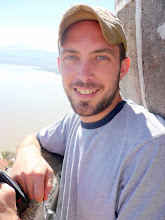The issue of extreme hunger in the Chaco province in Argentina (where I am living this year) is finally starting to get a little more international attention. Please read the following article:
http://news.uk.msn.com/Article.aspx?cp-documentid=6319354
Hunger persists despite Argentina's economic boom
Reuters
By Jorge A. Otaola
RESISTENCIA, Argentina (Reuters) - "Sometimes I have enough for milk, sometimes I don't," said Marisel Rivas as she cradled her underweight baby in an Argentine shantytown, where hunger persists despite the country's economic boom.
One of Latin America's wealthiest countries, Argentina has prided itself on having less of the acute poverty common across the region. But five years of strong economic growth have not lifted Chaco's residents out of poverty.
The slums that circle Chaco's main city of Resistencia are a world away from the elegant shopping malls and bustling steakhouses of Buenos Aires, some 650 miles (1,050 kilometres) to the south, where Argentina's 8 percent annual economic growth is palpable.
While nationwide poverty rates have dropped sharply since a 2001-2002 economic crisis, in Resistencia's slums, about 112,000 people live on $2 or $3 (98 pence or 1.47 pounds) per day and almost half of Chaco's 1 million people live below the poverty line.
As Argentines prepare to elect a new president next month, front-runner Cristina Fernandez de Kirchner, the first lady, has trumpeted the successes of her husband's presidency in halving the number of poor Argentines.
More than half of Argentines were plunged into poverty at the height of the economic crisis, but it has dropped to about a quarter due to strong economic growth since President Nestor Kirchner took office in 2003.
Cutting it further will be a challenge for Fernandez, whom polls predict will likely win a first round victory in an October 28 vote.
SKEPTICAL
In the shantytowns of Chaco, no one has much to say about the presidential race, and residents are sceptical after seeing endless politicians on the campaign trail make reams of unfulfilled promises.
Rolando Nunez, coordinator of the human rights group the Nelson Mandela Center, said life has worsened for Chaco's poor during the last two decades.
"It's the failure of the government's social and economic policies that has brought us to these levels," he said.
Without an industrial hub or other major economic development, generations of northern Argentina's residents have lived in poverty. Kirchner rolled back some free-market economic policies that many Argentines believe led to the economic collapse, but critics say many parts of the country have lagged behind.
Some analysts say Chaco's economic problems have been aggravated by the soybean boom that played a leading role in the country's dramatic economic recovery.
Soy farming needs less workers than the province's traditional cotton fields, driving people from the countryside to the tin-roofed shacks that circle the main city.
Rivas, 20, lives with her baby and another 2-year-old daughter in a tiny dirt floor hut with no water or electricity.
She gets by on a $50 bag of food staples that the city government hands out once a month and coins her husband picks up running errands or washing car windows at stoplights.
But it's not enough to keep hunger at bay.
Nearby, residents pick through garbage, competing with goats and pigs for the richest pickings.
"There are people who are going through worst times than me," said Jorge Ojeda, 44, said as he looked on, swatting flies. "There are people who have nothing to eat and the only thing they have is the dump."
Monday, October 08, 2007
Subscribe to:
Post Comments (Atom)






1 comment:
Good stuff - but no fair having someone else write your entry for you. I wanna hear what's going on with YOU!!!
Post a Comment